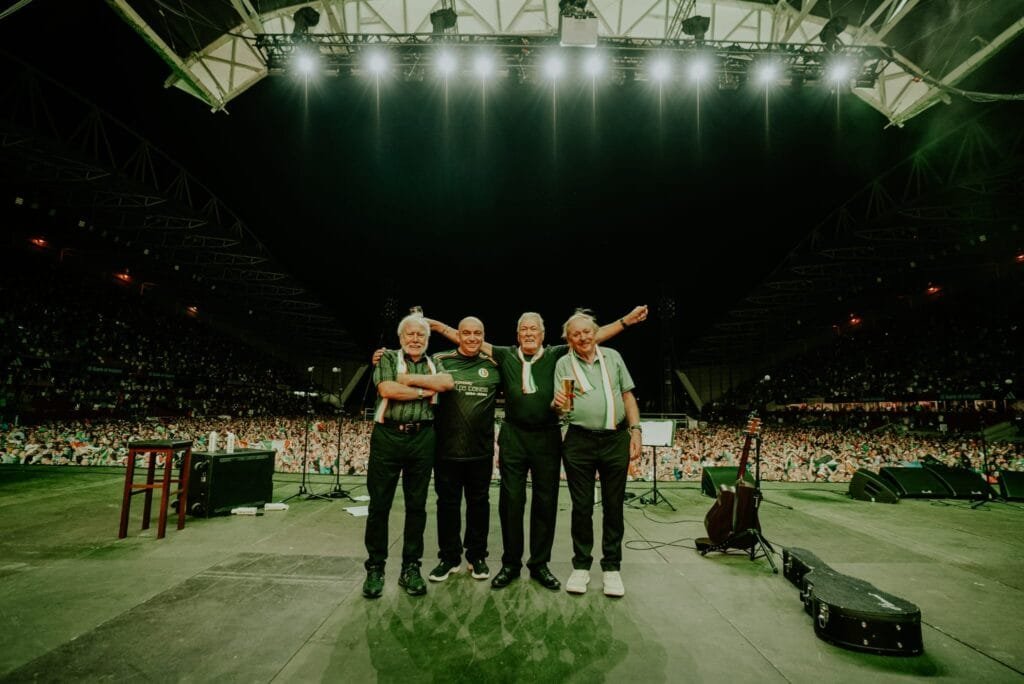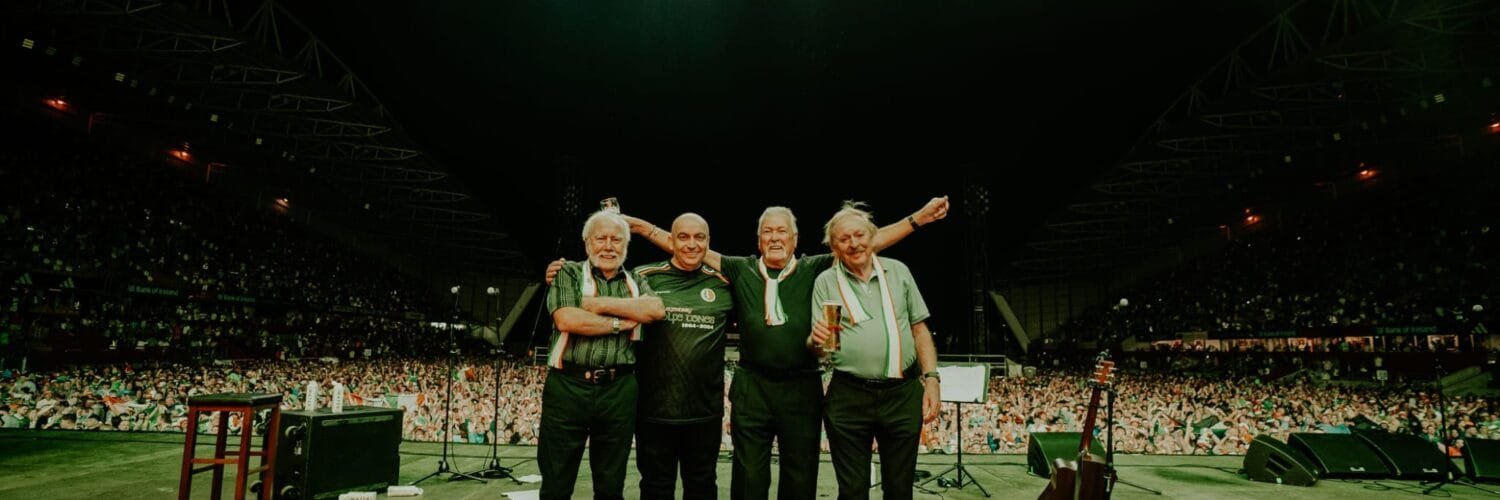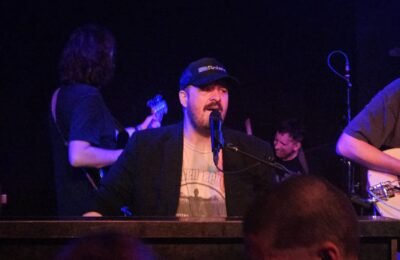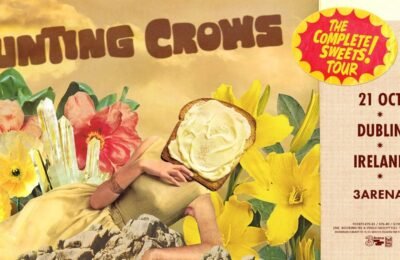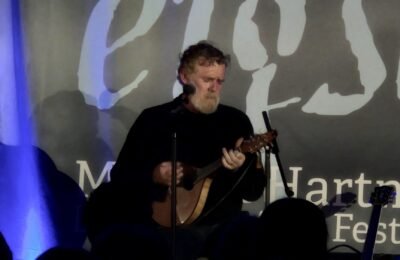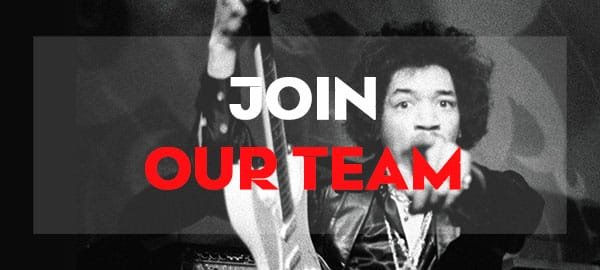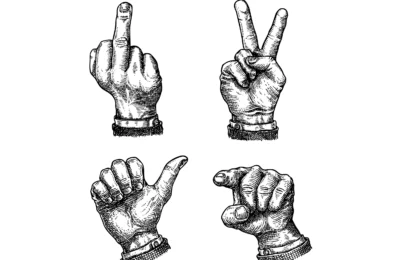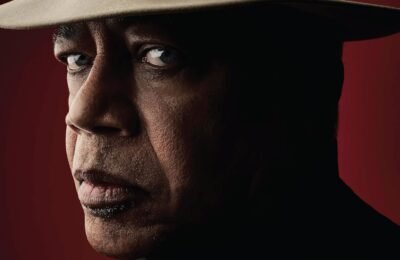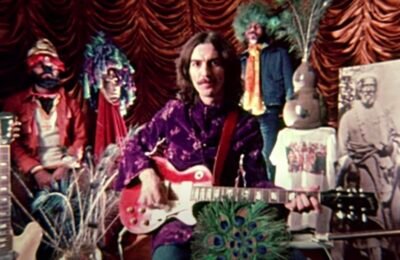The Wolfe Tones took their final bow after 61 years, closing a storied chapter with a second sell-out show at Thomond Park, Limerick, on July 13th. Long a bastion of patriotic Munster chants, the venue extended its voice to the nation as one of Ireland’s most iconic—and polarising—bands brought their journey to a close.
A Farewell in Limerick
Taking the stage at 8:15 pm and playing until just after 11, the Tones treated fans to a marathon 2½-hour set, a sweeping retrospective of rebellion, identity, and unity.
Support came from Irish singer Dave Lofts and Scottish group Brógeal. Video tributes from Kneecap and messages from figures like Mary Lou McDonald and Olympic boxer Kellie Harrington helped set the evening’s emotional tone.
A crowd of 29,000 filled the stadium—drawn from all corners of Ireland and as far afield as Australia and the United States. Green, white, and gold adorned every corner of the venue. Fans sang every chorus, waved Irish tricolours. Meanwhile, during key revolutionary ballads, they raised Palestinian flags in solidarity—mirroring the Wolfe Tones’ enduring message of international justice.
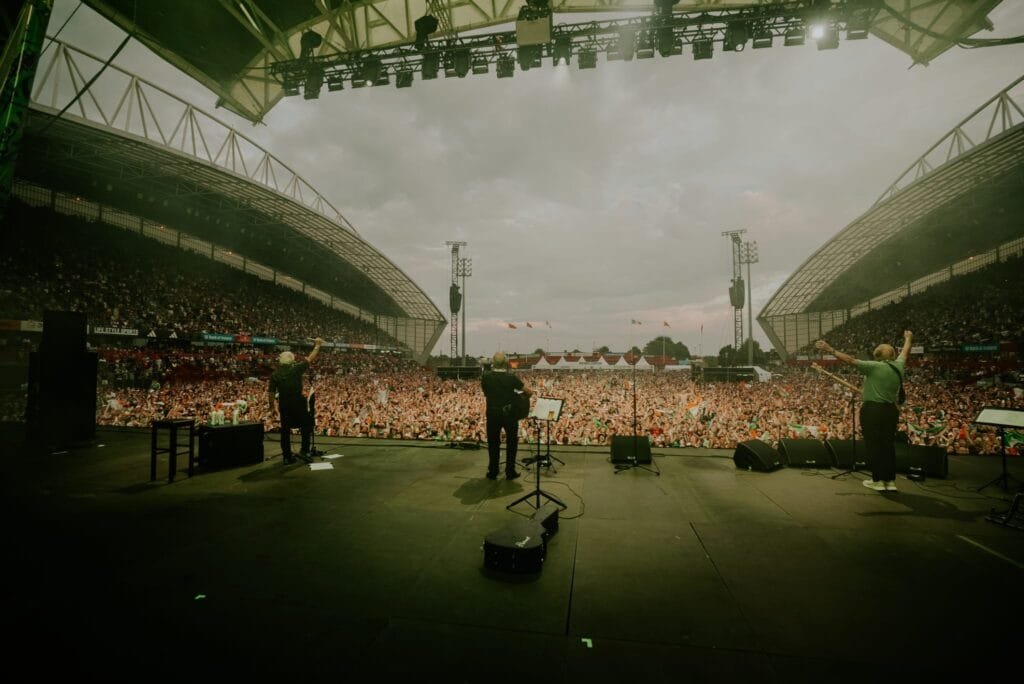
Echoes of Rebellion
The Wolfe Tones opened the night with “My Heart Is in Ireland”, a nod to diasporic longing. They followed by a rousing mashup: “The Broad Black Brimmer”, “Big Strong Man”, “Rock on Rockall”, “Irish Eyes Are Smiling”, and “Some Say the Devil is Dead”. The night continued with heart-wrenching ballads—“Joe McDonnell”, “James Connolly“, and “Grace”—songs that have long served as emotional anchors for fans.
The main set closed on a high with “Goodbye All Our Friends” and “A Nation Once Again”, striking notes of unity, remembrance, and farewell. However the night couldn’t end without one more round of “Celtic Symphony”. Its controversial “Ooh, ah, up the ‘RA” chorus was met with thunderous applause by many—but not without visible discomfort from others, a reminder of the complex legacy the band leaves behind.
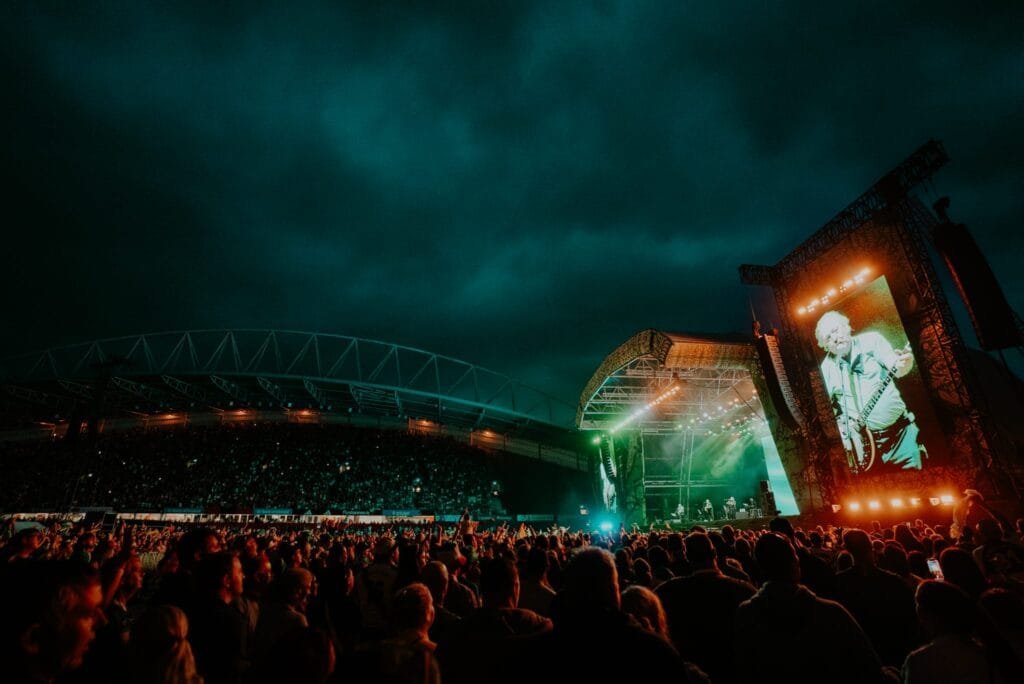
A Legacy Beyond the Stage
Over six decades, The Wolfe Tones chronicled emigration, famine, war, hunger strikes, and Irish identity in exile. As political tides shifted, they remained defiant, bringing rebel music from community halls to global stages—from Irish centres in Boston and Melbourne to sold-out stadiums back home.
For many second and third-generation Irish abroad, their songs were more than music—they were a lifeline to heritage. The band’s willingness to speak on contemporary issues—from Palestine to public healthcare—kept their message alive and urgent, though often polarising. In Thomond Park, those convictions met with full force: rebel lyrics echoed by thousands, Palestinian flags raised high, and a shared space of cultural pride and protest.
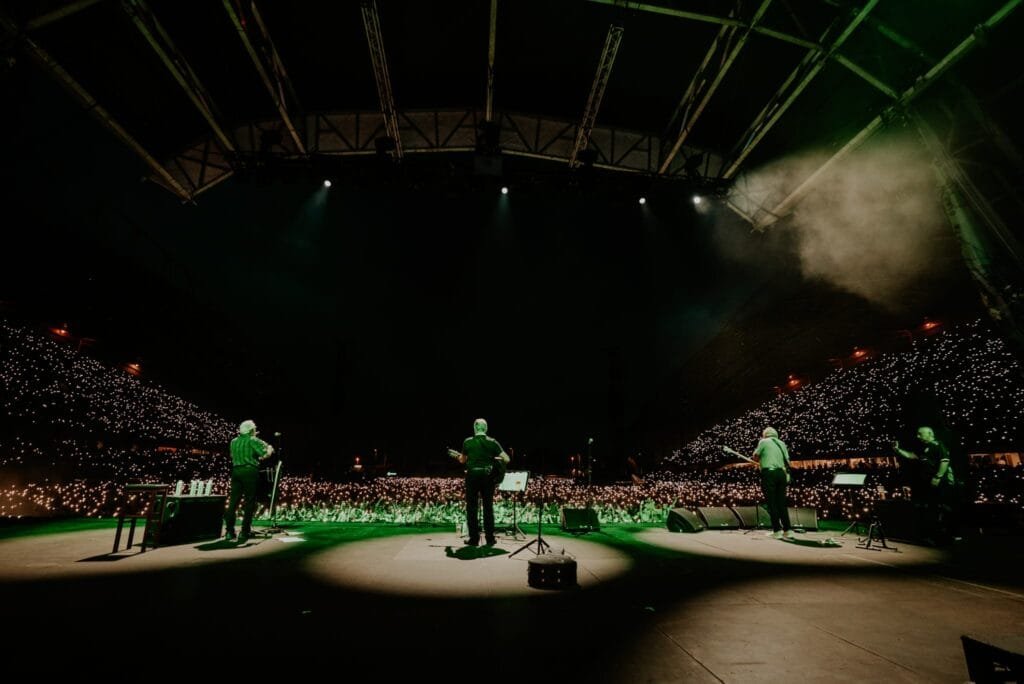
The Last Chorus
This final performance was no soft goodbye—it was a cultural summation. The crowd was emotional, diverse, and defiant, reflecting a legacy built on memory, resistance, and a shared yearning for identity. Despite their symbolic ties to the IRA and the discomfort that invokes for some, the Wolfe Tones redefined Irish rebel music and expanded its reach far beyond Irish shores.
Love them or critique their politics, few modern Irish groups have shaped the landscape of music, history, and diaspora consciousness like The Wolfe Tones. Their departure leaves behind a complicated, powerful legacy—and a chorus that will echo for generations to come.
